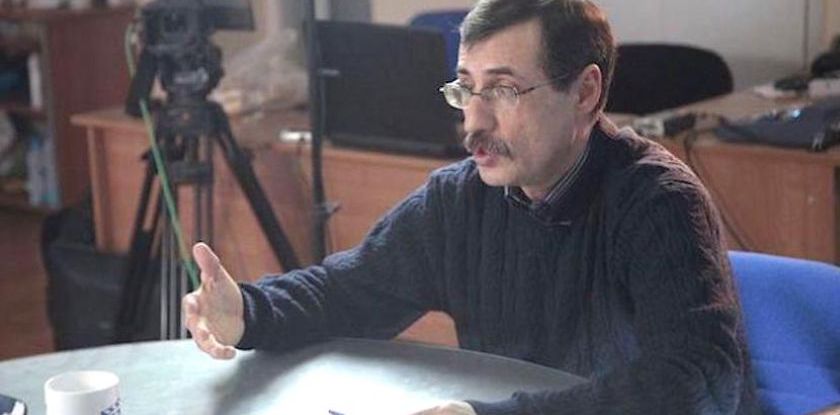“Something is happening upstairs”, said human rights advocate Evgeniy Zhovtis in response to our request to comment on Nursultan Nazarbayev’s appeal to the Constitutional Council. In his opinion, it has to do with the developments related to the power transit for which everyone in Kazakhstan has been preparing for quite some time.
The announcement that the President of Kazakhstan had requested the Constitutional Council to give an official explanation for Section 3 of Article 42 of the Kazakh Constitution caused a considerable agitation in the civil society. There was talk that he was contemplating the thought of how to resign from the presidential chair.
In our article Why did Nazarbayev Appeal to the Constitutional Council?, we suggest that this request can be related to the contradiction in the law since, for the time between April 28, 2020 and December 2020, Nursultan Nazarbayev’s presidential authorities appear to be in question.
There are, however, other opinions on the subject.
For instance, well-known Kazakh human rights advocate and attorney Evgeniy Zhovtis, while acknowledging the existence of the contradiction in the law, nonetheless believes that any kind of procedural issues related to the President’s resignation are secondary. In his opinion, the most important question to which we must find an answer is why it is in this particular moment that Nazarbayev sent such a query to the Constitutional Council and why he did so publicly - fully realizing that such an event would invariably evoke a frenzy both inside the country and, partly, abroad.

Here is Evgeniy Zhovtis’ opinion in its entirety.
“Yesterday, Nazarbayev commented on his question and, as follows from his words, the problem that made him address the Constitutional Council is whether the list of the grounds for terminating the presidential powers stipulated in the Constitution is complete since it does not contain such matters as, say, his voluntary resignation.
The Kazakh Constitution and the Constitutional law “On the President of the Republic of Kazakhstan” contain only two reasons – early release from duties due to poor health or impeachment on some very stringent grounds: adhering to the enemy at the time of war or aiding another state in carrying out adversary activities against our country. Therefore, I do not believe that, in this case, we are talking about some kind of procedural issues related to the duration of the presidential term. Nazarbayev said that that was a routine matter since he did not understand whether the President, according to the Constitution, had the right to resign voluntarily and how it would be regulated from the constitutional standpoint.
The other question which, to me, seems much more significant is why this is happening now and why this is happening in the public view. Obviously, given the impending transit, this news was bound to evoke an agitation inside the elite and the civil society because Nazarbayev’s query was perceived as an indication that the transit was somewhere on the horizon and its scenarios were being considered from the point of the constitutional dressing.
On the other hand, we have been living in the state of “waiting for something big to happen” for quite some time now. The state apparatus regularly conducts the reforms aimed to prepare the system for the replacement of its leader (this is how a great many experts assess the redistribution of the authorities among the branches of power and the strengthening of the NSC). And then the President alleges that no one should be worried, everything is all right, there will be no early elections, he will sit quietly until the end of term and, may be, even participate in the next elections. But now I think the factors of the President’s age and health come into play.
Therefore, whether the query has to do with the duration of the presidential authorities or who replaces whom and when, whether it has to do with the additional grounds for terminating the presidential authorities stipulated (or not) in the Constitution, all this is secondary. The most important thing is that this question is being asked right now and in such a light that allows to suggest that something is rising on the horizon. And the signal is being sent not only inside the country but beyond its borders as well.
Whatever the interpretation, it is clear that something is happening upstairs. And, since, in our country, politics is a closeted matter, our citizens can only try and guess what it is. I myself can only say that some developments are indeed underway in Akorda, that it is for a reason that Nursultan Nazarbayev has engaged in improving the constitutional law that concerns him personally. Such queries are always made for a reason, especially when they are made publicly. These actions have some very well-defined goals.
What are they? For instance, to give the civil society a topic for discussion. Or perhaps some steps related to the power transit are prepared to be taken, or it can be something else. Again, since politics in Kazakhstan lies beyond the public domain, since there is no opposition and the Parliament where these questions could be asked and answered, since there are no public debates on television where the experts could review the topic from every angle, we must exist in the world of hypothesizing and interpreting. So, I can only presume that Akorda is considering different scenarios and options related to the power transit and some of them require certain legal clarifications.
This does not mean that, in a couple of days, the President will resign, or some medical board renders him incapable of governing the country due to some illness. What is clear is that some developments related to the power transit are now taking place”.





